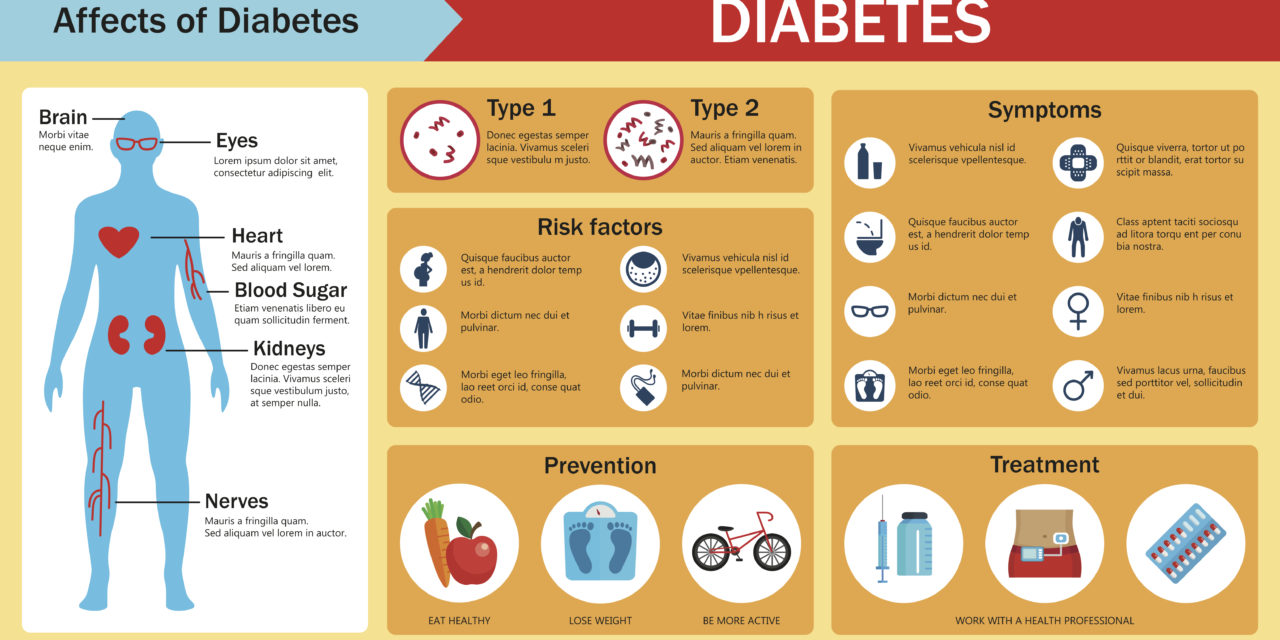Pulse of Information
Your source for the latest insights and updates.
Sweet Things You Didn't Know About Diabetes
Discover surprising sweet facts about diabetes that will change your perspective! Uncover the hidden truths now!
5 Surprising Facts About Diabetes and Sugar Consumption
Many people associate diabetes strictly with sugar consumption, but the truth is that the relationship is more complex. For instance, did you know that type 2 diabetes can actually be influenced by a variety of factors beyond just sugar intake? These include genetics, lifestyle choices, and overall diet quality. In fact, studies have shown that individuals with a high intake of processed and refined foods are at a greater risk of developing diabetes than those who consume a well-balanced diet rich in whole foods like fruits, vegetables, and whole grains.
Another surprising fact is that not all sugars are created equal. While it's commonly believed that consuming too much sugar leads directly to diabetes, natural sugars found in whole foods like fruits and vegetables can actually be beneficial. These foods provide essential nutrients and fiber that help regulate blood sugar levels. Additionally, some research suggests that artificial sweeteners may not be as harmless as once thought, potentially leading to an increase in cravings and overall calorie intake, which could in turn affect diabetes risk.

How Sweeteners Work: The Truth Behind Sugar Alternatives for Diabetics
How Sweeteners Work: Understanding the mechanisms behind sugar alternatives is crucial, especially for diabetics seeking to manage their blood sugar levels. Unlike traditional sugar, which is high in calories and can cause spikes in glucose levels, many sugar substitutes offer a low-calorie option with little to no impact on blood sugar. Sweeteners can be divided into two categories: natural sweeteners such as stevia and monk fruit, and artificial sweeteners like aspartame and sucralose. Each type has its own unique properties, benefits, and potential drawbacks that can affect a diabetic's health.
Many diabetics may wonder how to incorporate sweeteners into their diet without compromising their health. Each sweetener varies in sweetness level, so it is important to use these alternatives wisely to achieve the desired taste without consuming excess carbohydrates. For instance, using stevia in tea or baking can provide a satisfying sweetness without the calories. Additionally, research indicates that some sweeteners can even stimulate a positive physiological response, such as improved insulin sensitivity in certain individuals. However, it’s essential to be cautious and consult with a healthcare professional before making any major dietary changes, as individual responses to sweeteners can vary significantly.
Can You Still Enjoy Dessert? Understanding the Relationship Between Diabetes and Sweet Treats
Living with diabetes often prompts many individuals to rethink their dietary habits, especially when it comes to enjoying dessert. The good news is that you can still savor sweet treats without compromising your health. It all comes down to understanding the relationship between diabetes and sweet treats, and how to make informed choices. For those managing blood sugar levels, moderation is key. Selecting desserts that incorporate natural sweeteners, such as fruit or using sugar substitutes, can be a delicious way to indulge without overwhelming your body.
Another important aspect to consider is the timing and pairing of desserts with other foods. Pairing a small dessert with a balanced meal can help mitigate any spikes in blood sugar levels. Understanding the relationship between diabetes and sweet treats means being mindful of portion sizes and ingredient choices. By incorporating desserts that are high in fiber or protein, you can create a more satisfying treat that won’t derail your health goals. With a little creativity and knowledge, enjoying dessert is still very much possible for those with diabetes.